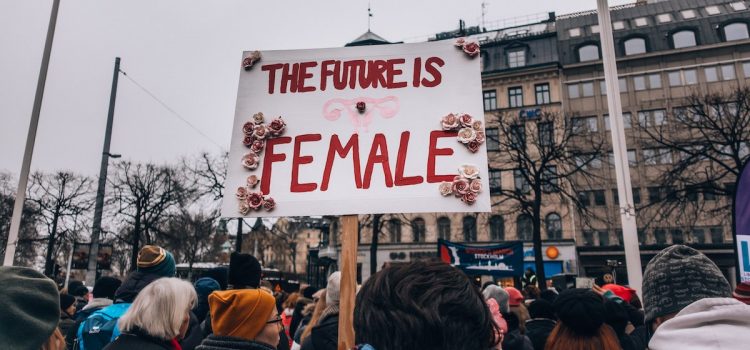By Carmen Chang,
In March 2021, the feminist collective Semillas de Chak Che l—a grassroots organization founded by five Latin American women in 2020—hosted a powerful public debate titled “Chronicles of Foretold Deaths: From Everyday Machismo to Feminicide.” Taking place amidst growing public awareness and outrage over gender-based violence in Latin America, the event brought together activists, scholars, filmmakers, and victims’ families to examine the structures that perpetuate violence against women. The discussion served as both a public denunciation and a call for systemic transformation.
Unveiling Structural Inequalities
At the core of the debate was a shared recognition: gender violence is not simply a string of isolated acts, but rather the result of entrenched social systems that normalize and even enable abuse. The panelists emphasized how gender inequalities persist in almost every sphere of public and private life across Latin America. Whether in workplaces, schools, or family settings, women are routinely denied the same opportunities, authority, and autonomy as men.
Affirmative action and gender quotas—though well-intentioned—were also scrutinized. Several speakers noted how these measures, while helpful in theory, often fail to address the root causes of inequality. In many cases, they result in tokenism or reinforce the stereotype that women are incapable of achieving success without preferential treatment. The conversation thus turned to the limitations of surface-level reforms and the urgent need for deeper cultural and institutional change.
Intersectionality was a major theme throughout the discussion. Many women—particularly those from Indigenous communities, Afro-descendant populations, or low-income background—face multiple and overlapping forms of discrimination. These compounded barriers severely limit access to education, healthcare, economic independence, and political representation. The panelists called for a more inclusive feminist approach that recognizes these intersecting oppressions.

The Power of Film: “Nosotras” by Natalia Beristáin
A pivotal moment in the event was the screening of “Nosotras” (“We”), a documentary by acclaimed Mexican filmmaker Natalia Beristáin. Through a poignant mix of testimonies, voiceovers, and visual metaphors, the film exposes the many layers of gender violence experienced by Mexican women—ranging from subtle, everyday forms like catcalling and emotional manipulation, to the most horrific endpoint: feminicide.
Beristáin’s film makes it painfully clear that women’s lives are often marked by fear, even in spaces that should be safe—homes, streets, schools, workplaces. The boundary between private and public danger is blurred, and for many women, daily life is an exercise in risk assessment. Nosotras presents this reality not as a collection of tragic anecdotes, but as a widespread societal pattern, shaped by centuries of patriarchy and neglect.
Voices of Resistance: Survivors and Families Speak
The most emotionally charged segments of the event came from the testimonies of survivors and families of feminicide victims. Nancy Lara, a woman who survived an abusive relationship, shared her story of financial dependence and control. Her partner did not need to use fists to dominate her—his weapons were money, guilt, and emotional manipulation. She described the painstaking journey toward reclaiming her autonomy, and how systemic barriers—like lack of state support or access to justice—made that journey even harder.
Another speaker, Berenice, recounted the murder of her sister, who was killed by a man whose romantic advances she had rejected. Her voice, at times trembling with grief and fury, highlighted the terrifying logic behind many feminicides: the belief that women owe men their affection, and that refusal justifies violence. Berenice’s account was a chilling reminder of the consequences of cultural narratives that prioritize male desire over female agency.
Statistical evidence shared during the event drove home the extent of the crisis. In Mexico, 59.4% of women report experiencing violence from a romantic partner, and an astonishing 98.5% of feminicides go unpunished, according to official data. These numbers reveal not just a failure of individual accountability, but a systemic absence of justice.

The Role of the State and Law Enforcement
Another major theme was the complicity of law enforcement and institutional neglect. Cities like Juárez—infamous for waves of unsolved femicides since the 1990s—were cited as examples of how organized crime, corruption, and patriarchy intersect. Human trafficking networks operate with near-total impunity, and local authorities frequently dismiss cases, blame victims, or lose evidence.
The mother of Idaly Juache Malina, a young woman who disappeared and was later found murdered in Juárez, gave a heart-wrenching account of how the police refused to take her daughter’s disappearance seriously. “They told me she probably ran away with a boyfriend,” she recalled. “But I knew something was wrong. I could feel it.” Her story is one of thousands, pointing to a larger pattern of institutional inaction and societal indifference toward crimes against women.
A Global Epidemic
While the focus remained on Latin America, the panelists also drew international comparisons to show that gender violence is a global epidemic. Countries like France and Finland—often praised for their gender equality policies—were not spared critique. The speakers noted how sexual harassment, workplace discrimination, and cultural misogyny continue to affect women even in the most progressive societies.
Claudia de la Garza and Erendira Derbez, scholar-activists and co-authors of “Feminism is for Everyone”, stressed that what many call micro-aggressions—the casual sexist jokes, dismissive comments, or assumptions about women’s roles—are not harmless. “Everyday machismo is never micro,” they argued. “It’s the foundation on which larger acts of violence are built.” Their remarks captured the cumulative impact of daily misogyny and how it contributes to a culture where feminicide becomes possible, even predictable.
Toward Change: Education, Awareness, and Reform
Despite the weight of the testimonies and statistics, the event ended on a note of hope and determination. The speakers emphasized that change is possible—but only if it is collective, intersectional, and sustained. Education was presented as a crucial starting point: teaching gender equality, consent, and emotional literacy from an early age can shift cultural norms over time.
Legal reform is also essential. This includes better protection laws for victims, harsher penalties for perpetrators, improved investigative procedures, and more robust training for law enforcement and judges. But beyond the law, society must change. Media, schools, families, and communities must all play a role in dismantling the norms that excuse or enable violence.
Above all, Semillas de Chak Chel reminded the audience that activism is not just about protest—it’s about healing, building networks of care, and ensuring that no woman is ever forgotten or silenced again. Feminicide, they argued, is not just a crime—it is a failure of the entire society.
Reference
- Fundadoras de la Colectiva Semillas de Chak Chel. Chroniques de morts annoncées : du machisme ordinaire au féminicide. Public debate. 6 March 2021.




